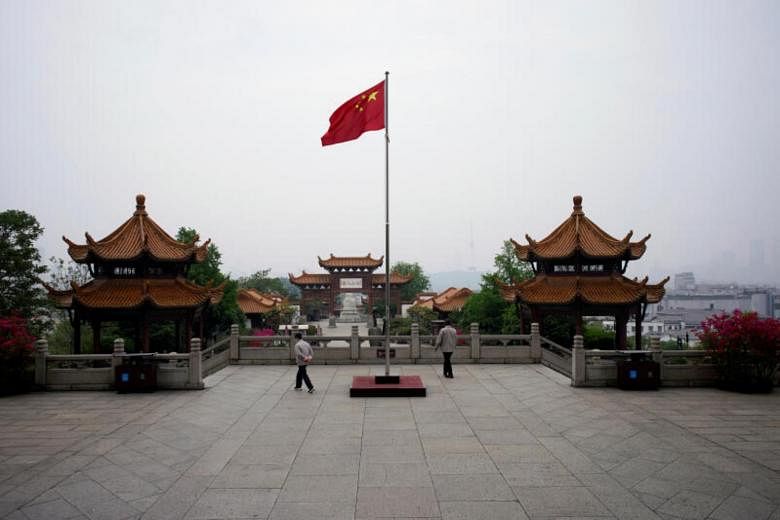BEIJING - In a sign of confidence that China has the coronavirus pandemic under control, the capital yesterday announced a step down in its emergency response level as officials set the date for long awaited parliamentary meetings.
The postponed National People's Congress will now kick off in Beijing on May 22, with over 3,000 delegates from around the country expected to pass laws, approve the budget and ratify personnel changes.
Another 2,000 representatives typically attend the Chinese People's Political Consultative Conference, the apex political advisory body. This meeting is set for May 21.
Known collectively as Two Sessions, or lianghui, the gathering is the most important political affair of the year, and a keenly-watched event as Beijing announces its economic growth target and military spending projections during the meetings.
This year marks the first time since 1998 that the joint parliamentary sessions have deviated from its usual March 3 sitting.
The meetings had gone on as scheduled during the Sars epidemic in 2003.
Yesterday, Beijing authorities said it would step down the capital city's emergency response level from the highest to the next level from today (April 30). Those coming into Beijing from low-risk provinces will also no longer have to serve a 14-day quarantine.
In addition, incoming travellers staying at Beijing hotels do not have to be tested for the coronavirus anymore.
Beijing raised its response level to the most severe on Jan 24, a day after the government imposed a lockdown on the epicentre Wuhan and surrounding cities.
Hubei remains the only province to maintain the highest emergency response level, after Hebei and Tianjin also announced yesterday they were reducing theirs.
It is unclear if all 5,000 delegates for the parliamentary meetings will be allowed to attend the gathering in Beijing or if some sessions will be conducted via video conference.
Instead of the usual 10 days, the session may also be shortened this year.
When asked yesterday, foreign ministry spokesman Geng Shuang would only say that because of the coronavirus outbreak, "this year's lianghui will be a little different from previous years' sessions".
All eyes will be on whether China unveils a multi trillion-dollar stimulus package, and if it will set a GDP target this year.
The coronavirus outbreak has left the economy in shreds, reducing gross domestic product in the first quarter of this year by 6.8 per cent.
Mega projects are already in the pipeline, with the official Xinhua news agency reporting yesterday that top officials had pushed through major infrastructure-building works in Hubei province including 5G construction to stimulate its economy.
Transportation projects have also been announced in the eastern province of Zhejiang, which is building an ambitious 300km high-speed maglev line to connect its cities of Ningbo and Hangzhou to Shanghai.
The southern city of Shenzhen is also targeting to triple the length of its 300km subway system with 16 new lines by 2030.


